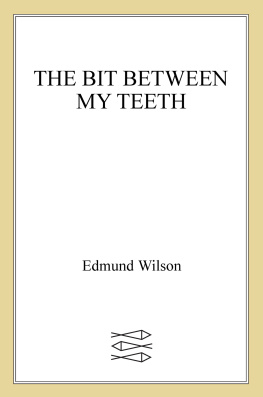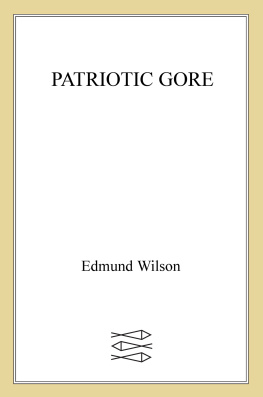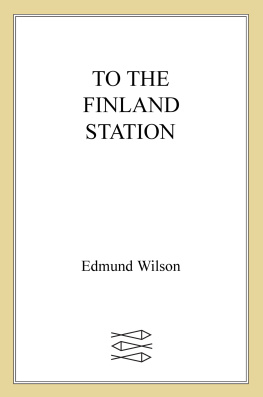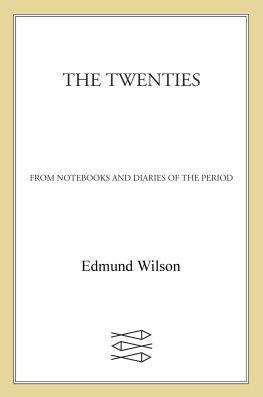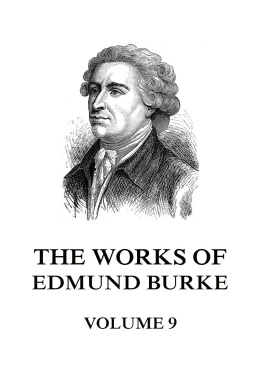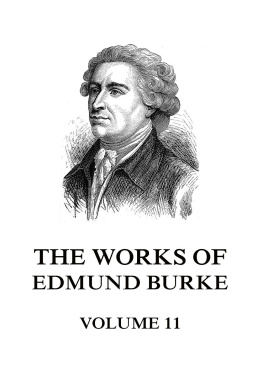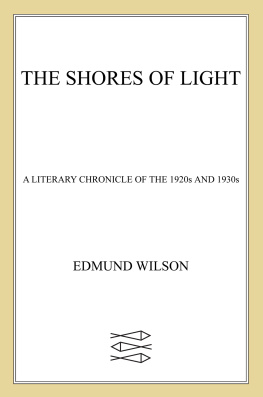Edmund Wilson - The Wound and the Bow
Here you can read online Edmund Wilson - The Wound and the Bow full text of the book (entire story) in english for free. Download pdf and epub, get meaning, cover and reviews about this ebook. publisher: Farrar, Straus and Giroux, genre: Detective and thriller. Description of the work, (preface) as well as reviews are available. Best literature library LitArk.com created for fans of good reading and offers a wide selection of genres:
Romance novel
Science fiction
Adventure
Detective
Science
History
Home and family
Prose
Art
Politics
Computer
Non-fiction
Religion
Business
Children
Humor
Choose a favorite category and find really read worthwhile books. Enjoy immersion in the world of imagination, feel the emotions of the characters or learn something new for yourself, make an fascinating discovery.

- Book:The Wound and the Bow
- Author:
- Publisher:Farrar, Straus and Giroux
- Genre:
- Rating:4 / 5
- Favourites:Add to favourites
- Your mark:
- 80
- 1
- 2
- 3
- 4
- 5
The Wound and the Bow: summary, description and annotation
We offer to read an annotation, description, summary or preface (depends on what the author of the book "The Wound and the Bow" wrote himself). If you haven't found the necessary information about the book — write in the comments, we will try to find it.
The Wound and the Bow — read online for free the complete book (whole text) full work
Below is the text of the book, divided by pages. System saving the place of the last page read, allows you to conveniently read the book "The Wound and the Bow" online for free, without having to search again every time where you left off. Put a bookmark, and you can go to the page where you finished reading at any time.
Font size:
Interval:
Bookmark:
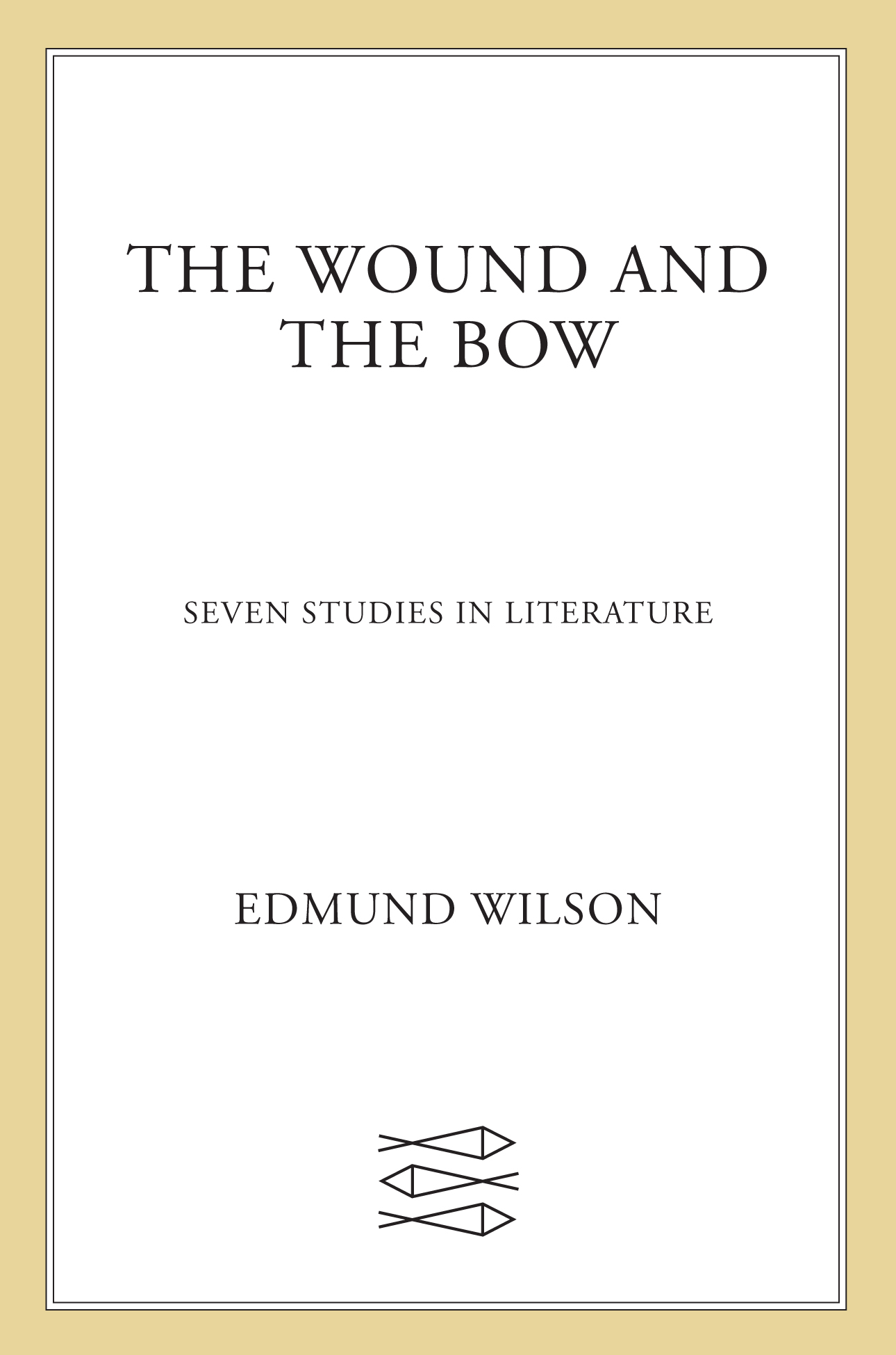

The author and publisher have provided this e-book to you for your personal use only. You may not make this e-book publicly available in any way. Copyright infringement is against the law. If you believe the copy of this e-book you are reading infringes on the authors copyright, please notify the publisher at: us.macmillanusa.com/piracy.
I bleed by the black stream
For my torn bough!
JAMES JOYCE
Edmund Wilson (1895-1972) was a novelist, memoirist, playwright, journalist, poet, and editor but it is as a literary critic that he is most highly regarded. You can sign up for email updates here.
To the Students of English 354,
University of Chicago, Summer, 1939
OF all the great English writers, Charles Dickens has received in his own country the scantiest serious attention from either biographers, scholars, or critics. He has become for the English middle class so much one of the articles of their creeda familiar joke, a favourite dish, a Christmas ritualthat it is difficult for British pundits to see in him the great artist and social critic that he was. Dickens had no university education, and the literary men from Oxford and Cambridge, who have lately been sifting fastidiously so much of the English heritage, have rather snubbingly let him alone. The Bloomsbury that talked about Dostoevsky ignored Dostoevskys master, Dickens. What happens when the London of Lytton Strachey does take Dickens up is shown in Hugh Kingsmills book, The Sentimental Journey, in which the man who was called by Taine the master of all hearts is made into one of those Victorian scarecrows with ludicrous Freudian flawsso infantile, pretentious, and hypocritical as to deserve only a perfunctory sneer.
Since Forsters elaborate memoir, which even in the supplemented edition of Ley has never been a real biography, no authoritative book about Dickens has been published. Some of the main facts about his life have till recently been kept from the public, and now that they have finally come out they have usually been presented either by doddering Dickens-fanciers or through the medium of garrulous memoirs. Mr. Ralph Straus and Mr. T. A. Jackson have recently published studies of Dickensthe one from the psychological, the other from the Marxist, point of viewwhich attempt a more searching treatment; but though they contain some valuable insights, neither is really first-rate, for neither handles surely enough or carries to fundamental findings the line which it undertakes. The typical Dickens expert is an old duffer who, as Mr. Straus has said, is primarily interesting in proving that Mr. Pickwick stopped at a certain inn and slept in a certain bed.
As for criticism, there has been in English one admirable critic of Dickens, George Gissing, whose prefaces and whose book on Dickens not only are the best thing on Dickens in English but stand out as one of the few really first-rate pieces of literary criticism produced by an Englishman of the end of the century. For the rest, you have mainly G. K. Chesterton, who turned out in his books on Dickens some of the best work of which he was capable and who said some excellent things, but whose writing here as elsewhere is always melting away into that peculiar pseudo-poetic booziness which verbalizes with large conceptions and ignores the most obtrusive actualities. Chesterton celebrated the jolly Dickens; and Bernard Shaw offset this picture by praising the later and gloomier Dickens and insisting on his own debt to the author of Little Dorrit at a time when it was taken for granted that he must derive from such foreigners as Ibsen and Nietzsche.
Chesterton asserted that time would show that Dickens was not merely one of the Victorians, but incomparably the greatest English writer of his time; and Shaw coupled his name with that of Shakespeare. It is the conviction of the present writer that both these judgments were justified. Dickensthough he cannot of course pretend to the rank where Shakespeare has few companionswas nevertheless the greatest dramatic writer that the English had had since Shakespeare, and he created the largest and most varied world. It is the purpose of this essay to show that we may find in Dickens work to-day a complexity and a depth to which even Gissing and Shaw have hardly, it seems to me, done justicean intellectual and artistic interest which makes Dickens loom very large in the whole perspective of the literature of the West.
The father of Charles Dickens father was head butler in the house of John Crewe (later Lord Crewe) of Crewe Hall, Member of Parliament for Chester; and the mother of his father was a servant in the house of The Marquess of Blandford in Grosvenor Square, who was Lord Chamberlain to the Household of George III. This grandmother, after her marriage, became housekeeper at Crewe Hall, and it is assumed that it was through the patronage of her employer that her son John Dickens was given a clerkship in the Navy Pay Office.
John Dickens began at 70 a year and was in time increased to 350. But he had always had the tastes of a gentleman. He was an amiable fellow, with an elegant manner and a flowery vein of talk, who liked to entertain his friends and who could not help creating the impression of a way of life beyond his means. He was always in trouble over bills.
When Charles, who had been born (7th February, 1812) at Portsmouth and had spent most of his childhood out of London at Portsmouth, Portsea and Chatham, who had had a chance to go to the theatre and to read the Arabian Nights and the eighteenth-century novelists, and had been taught by a tutor from Oxford, came up to London at the age of nine to join his parents, who had been obliged to return there, he was terribly shocked to find them, as a consequence of his fathers debts, now living in a little back garret in one of the poorest streets of Camden Town. On 20th February, 1824, when Charles was twelve, John Dickens was arrested for debt and taken to the Marshalsea Prison, announcing, as he left the house: The sun has set upon me for ever! At home the food began to run low; and they had to pawn the household belongings till all but two rooms were bare. Charles even had to carry his books, one by one, to the pawnshop. It was presently decided that the boy should go to work at six shillings a week for a cousin who manufactured blacking; and through six months, in a rickety old house by the river, full of dirt and infested with rats, he pasted labels on blacking bottles, in the company of riverside boys who called him the little gentleman. He wanted terribly to go on with his schooling, and couldnt grasp what had happened to him. The whole of the rest of the family moved into the Marshalsea with his father; and Charles, who had a lodging near them, went to the jail after work every evening and ate breakfast with them every morning. He was so ashamed of the situation that he would never allow his companion at the blacking warehouse, whose name was Bob Fagin, to go with him to the door of the prison, but would take leave of him and walk up the steps of a strange house and pretend to be going in. He had had a kind of nervous fits in his earlier childhood, and now these began to recur. One day at work he was seized with such an acute spasm that he had to lie down on some straw on the floor, and the boys who worked with him spent half the day applying blacking bottles of hot water to his side.
Font size:
Interval:
Bookmark:
Similar books «The Wound and the Bow»
Look at similar books to The Wound and the Bow. We have selected literature similar in name and meaning in the hope of providing readers with more options to find new, interesting, not yet read works.
Discussion, reviews of the book The Wound and the Bow and just readers' own opinions. Leave your comments, write what you think about the work, its meaning or the main characters. Specify what exactly you liked and what you didn't like, and why you think so.

